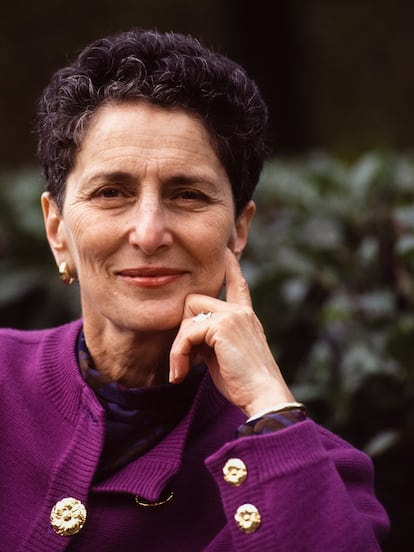In Memoriam: Natalie Zemon Davis, the woman who included ‘the voices of the past’ in the study of history
Davis, who died last Saturday at the age of 94, incorporated important changes in social and cultural historical research at the end of the 1970s

No one represented better than Natalie Zemon Davis the transition from social history to cultural history, which was reflected in important changes in research and historiography in the late 1970s and early 1980s. Born in Detroit in 1928, educated at the best universities, from Harvard to Michigan, the historian died last Saturday, just a few days before her 95th birthday.
Workers and peasants, and the working class in general, became the main historical subject of social history promoted, in contrast to traditional political history, by the Annales school in France and by British Marxist historians. And although few did so with the lucidity and imagination shown by E. P. Thompson, rhetoric about “class,” “class experience,” and “class formation” flooded Marxist and radical literature.
But they flooded it at a time when the new social movements were already showing a growing “awareness” that there were also other divisions that matter. Two of them, race and especially gender, made their way into the agendas of some historians, including quite a few female historians.
True equality was yet to come. It would be one that incorporated new subjects, new sections of the population that had sought to establish their identity outside the elites of political history and the male workers of social history. The insertion of the “peripheral,” of the “inarticulate,” of culture as the study of living conditions and daily experiences: that was true equality. It also meant the end of the “grand narrative” sponsored by scientific approaches to the past, replaced by a fragmentation of the object of study of history.

Natalie Zemon Davis summed it up precisely in an article originally published in Storia della Storiografia (1990): “What is social history in the late 1980s? At the very least, it is also cultural history. Classical social history maintains close ties with sociology and economics; the new social history seems to keep them rather with anthropology and literature.”
According to her, the historian does not invent freely and arbitrarily, but rather follows “the voices of the past.” And the historian, depending on the voices he or she wants to hear, uses certain sources, methods or asks some questions or others to the researched material. It is also history understood as “this is how you remember what happened,” the flagship of oral history, of the new sociocultural history and even of the historical novel.
Natalie Zemon Davis called the investigation of invisible structures “the social creativity of the inarticulate.” The echoes of those voices from the past that are transmitted from generation to generation was the basis of the fictional story The Return of Martin Guerre, where fiction and truth, always relative in the historical research, went hand in hand.
And Natalie Zemon Davis passed on her teachings for decades to hundreds of students in the History Department at Princeton and later at the University of Toronto. At the Central European University in Budapest (Hungary), for years they have dedicated annual sessions to the study of her work: modern French history, anthropology, literary theory, marginalized women... Her work is the best way to approach the myriad of possible approaches to the past. We will continue to pass on your teachings, Natalie Zemon Davis.
Sign up for our weekly newsletter to get more English-language news coverage from EL PAÍS USA Edition
Tu suscripción se está usando en otro dispositivo
¿Quieres añadir otro usuario a tu suscripción?
Si continúas leyendo en este dispositivo, no se podrá leer en el otro.
FlechaTu suscripción se está usando en otro dispositivo y solo puedes acceder a EL PAÍS desde un dispositivo a la vez.
Si quieres compartir tu cuenta, cambia tu suscripción a la modalidad Premium, así podrás añadir otro usuario. Cada uno accederá con su propia cuenta de email, lo que os permitirá personalizar vuestra experiencia en EL PAÍS.
¿Tienes una suscripción de empresa? Accede aquí para contratar más cuentas.
En el caso de no saber quién está usando tu cuenta, te recomendamos cambiar tu contraseña aquí.
Si decides continuar compartiendo tu cuenta, este mensaje se mostrará en tu dispositivo y en el de la otra persona que está usando tu cuenta de forma indefinida, afectando a tu experiencia de lectura. Puedes consultar aquí los términos y condiciones de la suscripción digital.








































